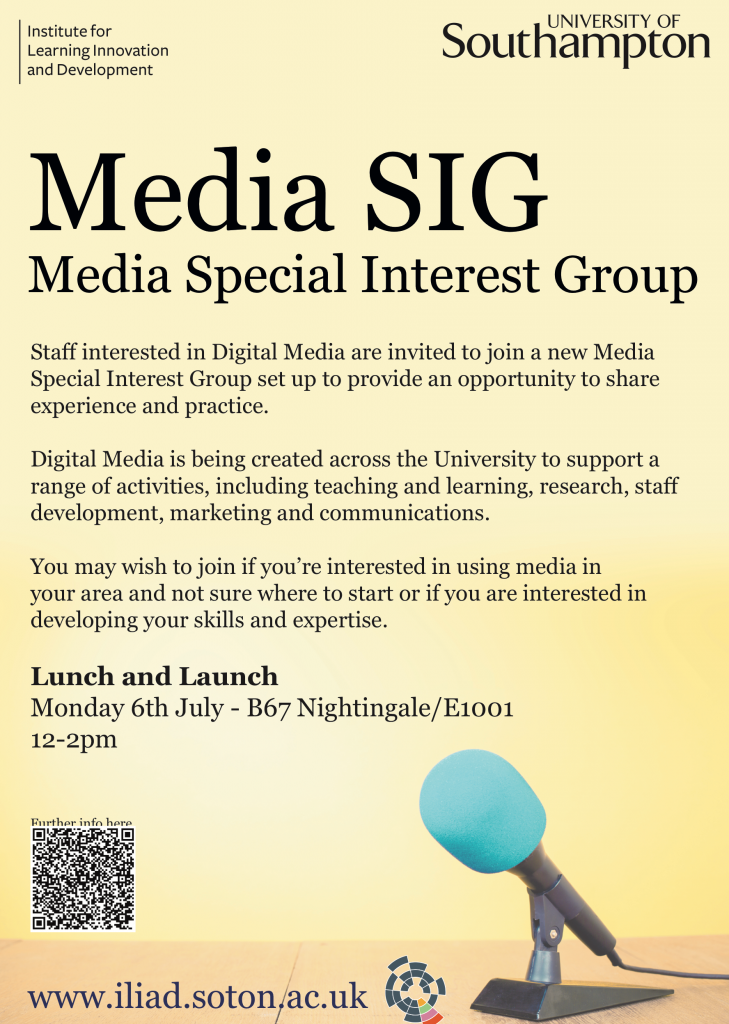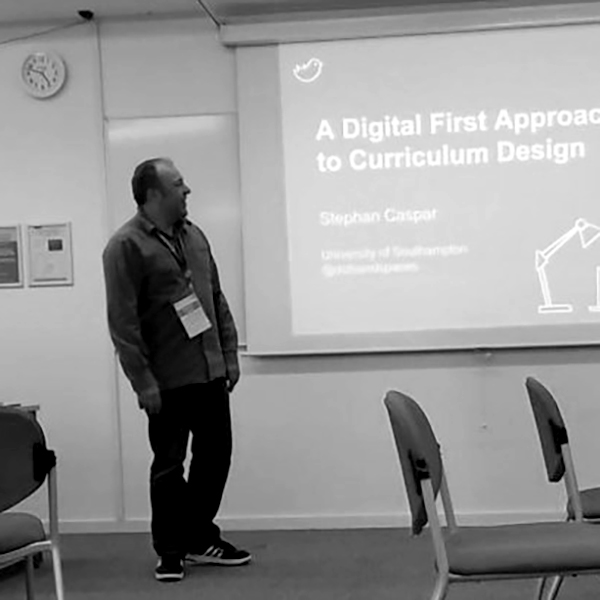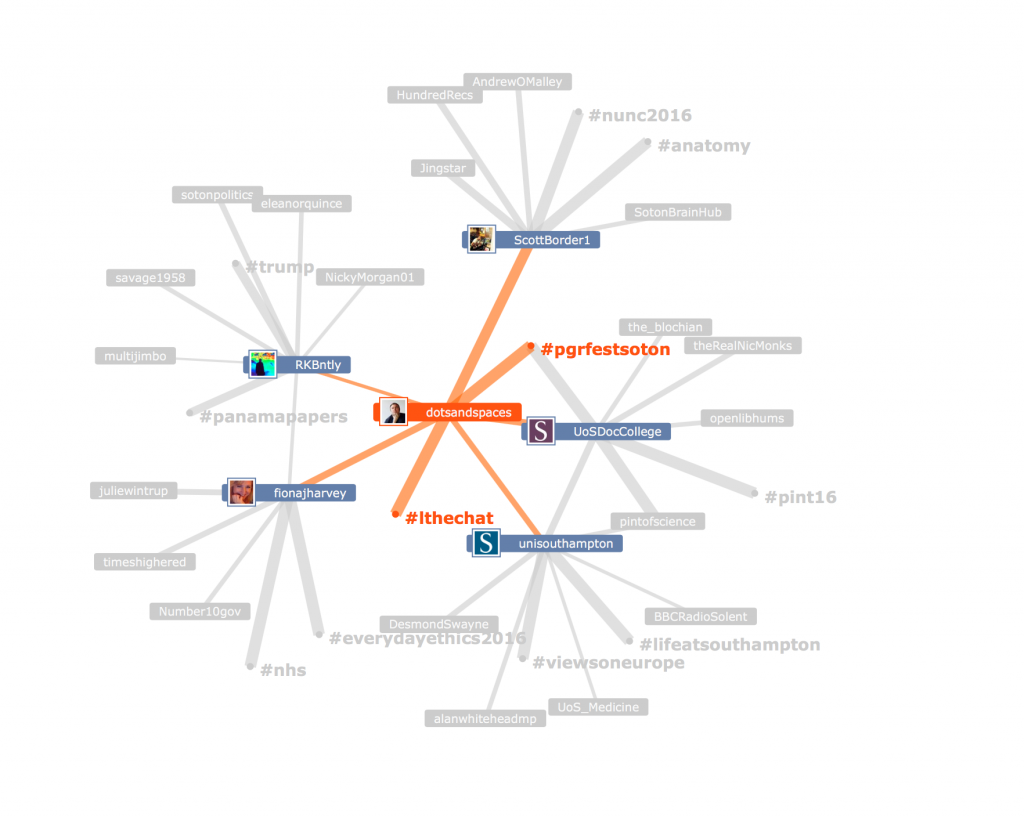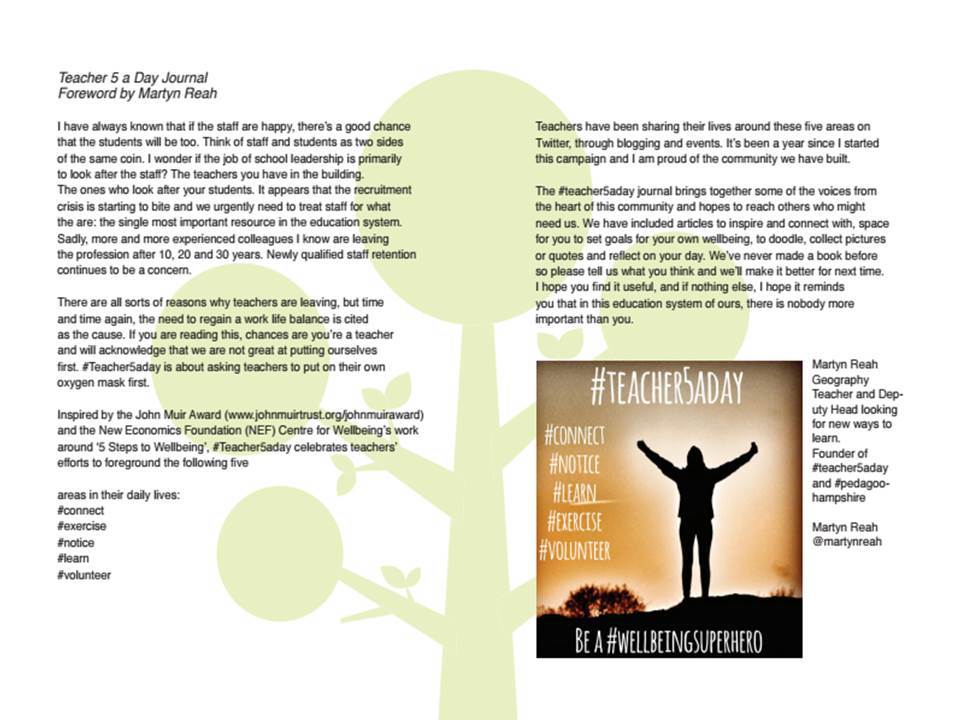A collaborative approach.
The move from a relatively small college to a large university has forced me to rethink the way that I work with my own team, collaborate with colleagues and engage with learners. The Institute for Learning Innovation and Development was established as a central unit that would unite development work in three distinct areas. The most successful aspect of bringing these areas together, from staff development, supporting and training educators, and developing researchers, is an increased understanding of how digital literacies underpin everything that we do.
My work is often formed from close collaboration between academic teams who are seeking to address key education objectives. Often there are real-world issues, such as the need to teach at scale, the need to teach over distance and the need to share and create resources using new and emerging technologies.
There is an active community of educators working with learning technologies and there is a need to disseminate good practice and encourage colleagues to talk about their approaches. ILIaD has developed a Community of Practice which invites those interested in improving the status and therefore the effectiveness of teaching & learning at the University.
Collaboration often takes the form of supporting a desire to experiment or test a new idea or approach. There has been recent talk about an innovation pipeline which would remove the adhoc and sometimes heresay nature of the adoption of new tools and resources. We are well placed within the Institute to create resources, such as a website or develop multi-media to support a change in academic or research practice. It is important to recognise that these interventions sometimes take place over a long period of time and there is a role to play as a critical friend or supporter for the person willing to effect change in their process.
Communicating and Listening
There a number of channels and tools that we use to facilitate the work of the unit, these include University channels such as the Sussed intranet pages, University website pages and blogs for individuals and teams. We use email and Slack, which has become an important internal communication tool, especially for group notices and updates. Elsewhere twitter is a good way to signpost work, communicate 1:1 and share practice.
I am keen to explore these channels and others, as I am interested in how these could also be used in professional practice, either for teaching, public engagement and feedback. There are number of excellent uses of twitter for teaching & learning as well as use of storify after an event or session. Lately I have enjoyed using Periscope for live streaming, I’ve seen it used effectively for Q & A sessions or informally record presentation or performance. There is an opportunity to use talkshow – an app for public sharing of texts, which although it shares its DNA with twitter is nicely contained and manageable, perhaps an easier way to manage tweetchats.
There is a great deal involved in good collaboration, the ability to recognise different strengths and areas of expertise, for instance technical or experience of working with particular groups of people. It has been important in my own development to understand how to use collaboration in an effective way, for instance understanding that I need to bring people into a conversation or process where I recognise my own limitations or lack of skills in a particular area.
Working with colleagues at UoS
In the past few years I have gained an appreciation of the need to create professional networks, both within organisations and externally. I believe that some of the value of what I am able to contribute is derived from the ability to plug into these networks to gain better understanding of particular issues or developments.
There are a number of groups and boards to which I belong at the University of Southampton. These include:
MOOC Core Team
The University has been producing online courses for FutureLearn since late 2014 and has to date produced nine courses and countless re-runs. The Core Team assembles to discuss issues of process and submission, including scheduling of resource for the planning and production of courses. Those invited to participate are representatives from ILIaD, Legal Services, Communications and Marketing, Library, and Strategy.
Over the past two years we have worked to establish working methods and establish protocol. It has been a rocky ride, there are many factors, with priorities and processes challenged by each course and each academic unit or faculty that has been involved. It is often the case that the educators are working on an online course for Futurelearn for first time and as such need to be guided and supported through the process. As with any media project, the academic teams approach them with differing degrees of understanding and experience, some have a great deal of media experience, are established broadcasters and use to interviews; whereas some are speaking on video for the first time and are often less sure and in need of support. The MOOC Core Team provide support in terms of all stages of course development, from initial ideas and planning, working with Learning Designers, Media Development Team and liaising with FutureLearn.
Crucial to the success of this team is the openness and generosity of those involved, keen to work with each other in support of academic teams and contributors. The team meets at regular intervals to provide updates and reports on current projects and discuss the viability of proposed courses and future projects.
Curriculum Leaders Network
The second internal group which I am very pleased to belong to is the Curriculum Leaders Network. This group was established in order to bring together educators working on Curriculum Innovation, a series of interdisciplinary modules offered as flexible learning at Southampton. These modules can be taken by almost any student across any programme of study and offers a range of different options in a variety of subjects, with some of the more popular being UOSM2008 Living and Working on the Web, UOSM2009 Ethics in a Complex World, UOSM2014 Piracy, Security and Maritime Space and UOSM2031 Engineering Replacement Body Parts. This last module is one that I have first hand experience of working with, in so far as supporting a number of elements, around
https://soundcloud.com/elip_uos/dr-russell-bentley-talks-curriculum-innovation
Technology Enhanced Learning (TEL) Board.
This is an advisory group which aims to discuss issues around adoption of learning technologies at the University. Members are drawn from faculties and professional services who come together to look at new developments, innovative technologies and ensuring the University maximises it’s opportunity in terms of current systems, including e-portfolio, online feedback and student engagement systems, VLE (Blackboard) and anything else used for teaching & learning.This has been an interesting group to be part of, for one it has helped me to expand my internal network, connecting many of those people who have an interest in TEL and adopting new technologies within their faculties. It has been somewhere to bring discussion around the effectiveness of TEL adoption and the barriers encountered in doing so. As an advisory group it reports to the Assistant Pro-VC Education’s ESIG (Education Strategy) Group.
Media Special Interest Group and Articulate Storyline Special Interest Group.
These two groups are run as an activity for our Community of Practice, encouraging users and potential users, those already engaged and those exploring the use of media in their teaching or research work. The Community of Practice was established within the Institute for Learning Innovation and Development in order to champion the work of educators and those involved in delivery teaching & learning throughout the University. A number of special interest groups were established in order to promote key objectives or areas within the COP.
MediaSIG
Digital media is being created across all areas of the University to support a range of activities, including teaching and learning, supporting research, staff development and marketing and communications. This interest group has been set up to provide an opportunity to share experience and practice across the organisation. The aim is to meet up on a regular basis to see view media work, share approaches, templates and resources. For those commissioning media and digital work, this group provides a valuable network of people who are able to support and provide guidance. The group has a Sharepoint site and Trello board.
There are a number of cases where this group has shown impact. For instance.
- Support for Faculty of Business, Law and Art – Placements Office
This team benefited from sharing their work and talking about the process of creating media to support their online course. - Use of H5P in School of Education – having been initially introduced to this online tool at the Media SIG, educators have incorporated it in the development of their resources and courses.
- The use of video abstracts in research – following discussion at MediaSIG, there have been workshops and training sessions, with a number of research groups exploring media creation in support of public engagement, conference papers and funding bids.
I have recently been invited to attend a Pathbrite users group and looking forward to a new Digital Badges Special Interest Group which I am sure will be useful in terms of lobbying for change in terms of ePortfolio and Micro-accreditation as well as supporting educators investigating their use or potential use within their teaching.
#FBKSoton
I’ve been a fan of podcasting for many years and regularly listen to educational podcasts such as TIDE (Today in Digital Education) hosted by Doug Belshaw and Dai Barnes. I’ve been lucky enough to be a guest on Inspiration 4 Teachers and you can hear my episode below:
I was keen to create a podcast around teaching & learning at Southampton and teamed up with my colleague Fiona Harvey to present a podcast talking about some of the more innovative ideas in TEL and discuss ideas and generally just riff about our work. This podcast is #FBKSoton and is published via soundcloud and itunes.
#FBKSoton, a bi-rarely podcast singing the praises of great educators and brilliant ideas within teaching & learning. (From 2015 TEL Conference)
This occasional series has included interviews with educators and support staff, students and even recordings at conferences and other events. Sometimes there are opportunities to use sections from video interviews and the format offers opportunity to add longer sections.
There is huge potential in podcasting, I would very much like to hear more voices coming through, Southampton has a core of regular podcasters and it is a medium that is fast growing in popularity, with one of my favourites being Adam Procter and Derek Yates’ Inkubator Podcast, talking about education and technology in art and design. The main reason for growth in popularity I would speculate is that it suits simple listening, that video requires you to sit in front of a screen and watch, whereas podcasts can be absorbed when you’re doing something else, we’re much more likely to be tolerant of the long-form in a way that we’re not with video. My favourite time to listen is while I’m doing the washing up, looking out over the sink into the garden, there are so many useful ideas to pick up and reflect upon, I now see it as a way of topping up and staying in touch with this ever shifting sector.
Partners, friends and national networks
Since I arrived at Southampton I have put a great deal of work and emphasis into the development of my professional network. I have attended events and conferences, joined in online discussion and met with colleagues internally and externally with a view to gaining insight into areas that I work in and those that I still need to familiarise myself with. I continue to keep up to date with the wider community in the following ways:
Conferences and Events – ALT-C, JISC DigiFest, BETT.
In 2015 I submitted my first paper to ALT-C entitled A Digital First Approach to Curriculum Design and was pleased to be able to present. It was my first experience of doing so and I later reflected that it had been a valuable experience, that I learnt a great deal. I decided to look at an idea around TEL adoption and in particular how a Digital First approach would effect change throughout an organisation. This question was probably fuelled by my experience in my previous post in FE and was reflected thoughts around encouraging Senior Leaders to adopt TEL in their institutions. I wrote two posts following my talk which I published on Medium – Part 1 and Part 2. Overall, I reflected on the talk as positive and significant in terms of my introduction as a participant rather than simply a visitor to ALT-C.
I think it reads well, but doesn’t entirely translate to a workshop. I also think that I’m a little out of date with my topic, as some people reminded me at the workshop — we’ve moved on. My own challenge was to tackle something that pushed me in terms of my specialism. I’m someone working to create media for learning and research, but I wanted to touch on some of the issues that we’re facing in implementing technology into education.
Stephan – From the Medium post.
Special Interest Groups – MELSIG, ELESIG
I am a member of two groups and have attended conferences as a delegate at each one. MELSIG The UK Media-Enhanced Learning Special Interest Group is chaired by Andrew Middleton at Sheffield Hallam University, I am a member of the steering group and looking to support future events and publications. ELESIG Evaluation of Learners’ Experiences of e-learning Special Interest Group is a community of researchers and practitioners in HE creating resources that can be used to support e-learning in the UK.
Online – Twitter #LTHEchat
Twitter is increasingly used as a channel for connecting educators in the UK. Over the past two years since I’ve been using twitter for work (although I initially joined this fledgling social network in 2007) I have enjoyed the conversations, followed links to interesting articles and stayed in touch with colleagues across and increasing sector of users. One of my most useful interactions is a weekly discussion tagged #LTHEchat which I try to join on a regular basis. The topics are focused on learning and teaching in HE and I am attracted to the emphasis on pedagogy that the organisers use to lead a wide range of discussion, including technology, student engagement, teaching, research and much more.
I also find myself regularly reading newsletters and emails from JISC and ALT as well as key individuals including close colleagues and wider experts who blog regularly. A list of current reading can be found here.
Teachmeet
One of the most inspirational inter-sector events that I’ve been involved in both as an organiser, participant or attendee has been a series of local Teachmeets. These events are usually run in the evening and invite you to listen to an evening of short talks, usually no more than 3-5 minutes long. Many use the opportunity to present on a particular aspect of their practice, whether that is something within their approach, a piece of reflection, a particularly successful project or intervention. Many have used the time to talk about a particular use of technology that has enhanced their teaching and I have heard presentations about apps or websites, use of drones, robotics, augmented reality, computing and electronics and invitations to hackdays or inventor days. Sometimes to most interesting talks are short reflections, shared experiences about an aspect of teaching, including talk about the job itself and attempts to understand the role against different circumstances and contexts.
A recent movement that grew out of a series of #TMConnectED teachmeets has been the #teacher5aday campaign. This teacher well-being campaign is based around the Five ways to well-being document published by the New Economics Foundation. It has resulted in a series of talks, activities and now even a book. I have contributed an article talking about flexible working, calling for managers to adopt new thinking to better empower teachers in their own time-management.
These activities and involvements have become significant in terms of my professional practice. I think that each of them helps to inform my development, ensures that I am up to date with discourse around my area and opens up new opportunities for collaboration and collegiality.




